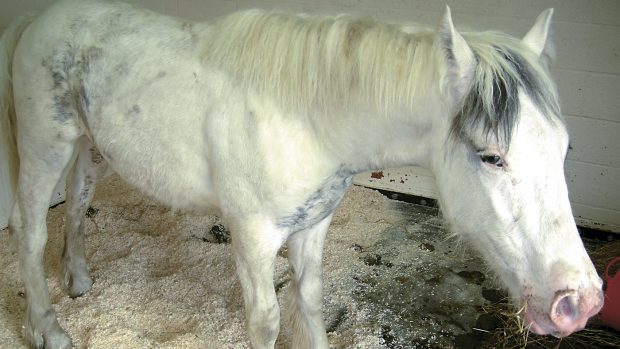Q. I have been advised by a horseowning friend to get my seven-year-old 16hh cob mare vaccinated for equine influenza but I’ve heard horses can suffer adverse reactions. Is this true?
Also, if my horse does get flu, are there any alternative therapies which would aid recovery?
Tim Couzens MRCVS replies: Horseowners are now looking at vaccines more critically, especially since recent publicity has highlighted some of the potentially adverse effects of vaccination in dogs.
Vaccines have, of course, been around for many years and are constantly undergoing development, refinement and monitoring to produce a better and safer product. Their efficacy in protecting against the equine flu viruses and tetanus has been proven over the course of time. In addition, all vaccine manufacturers have to put their products through rigorous testing and safety procedures before their products are allowed on the market. This is to minimise any unwarranted andunwelcome side effects and to maximise the protection offered by the vaccine.
Nevertheless vaccines do cause reactions in some horses. These fall into two broad categories:
Reactions to vaccines
The types of reactions which fall into the first group are recognisable by many horseowners:
The vaccination stresses the immune system causing disease symptoms to appear. This may account for those animals which appear to develop flu shortly after being vaccinated.Veterinary surgeons involved with natural medicine will also be aware of reactions which occur in the second category, including those which are much less well-defined and more difficult to prove.
Reactions of this type have a more profound and long-lasting effect on health. The underlying reason is the way in which vaccines appear to be able to affect or alter the immune system leading to a condition generally referred to as vaccinosis. This term is applied to any long-term health problem arising after a vaccination. Vaccinosis problems seen in horses include the development of COPD, mud fever, skin allergies and loss of performance.
Making the decision
The ultimate decision whether to vaccinate or not is a very personal one. Conventional vaccines have a proven track record and are well tried and tested. Other than this, the level of protection they offer can be measured by a blood test if need be. However, a small number of horses will react to vaccination either with short-term reversible problems or by developing much more serious health consequences which are linked to vaccinosis.
If you plan to avoid using conventional vaccines then there are one or two points that you should consider. While equine flu can be serious, the risk of not vaccinating against tetanus can have even more serious consequences. Other than this, failure to vaccinate may mean you won’t be allowedto compete at a number of events where vaccination is mandatory.
Looking at alternatives
If, after careful thought, you decide not to vaccinate your horse, then homoeopathy can offer an alternative by the use of homoeopathic remedies known as nosodes. This method is referred to as ‘homoeopathic vaccination’.
Nosodes are made from the equine flu virus and tetanus toxin/bacteria in much the same way as other homoeopathic remedies are made by a process of specialdilution. The mechanism by which they offer protection has not yet been proven and certainly there is nothing measurable in the blood to confirm that the animals are protected. Nonetheless, in as much as homoeopathy works, nosodes do seem to have some effect upon the body and may well offer some form of protection.
Other than the use of nosodes there are ways to improve your horse’s immune system and help him fight against flu, indlucing natural remedies:
If you are considering using nosodes you should discuss the situation with your usual vet first and then ask for a referral to a homoeopathic vet. He/she would be qualified to offer you the specialist advice you’re going to need.




